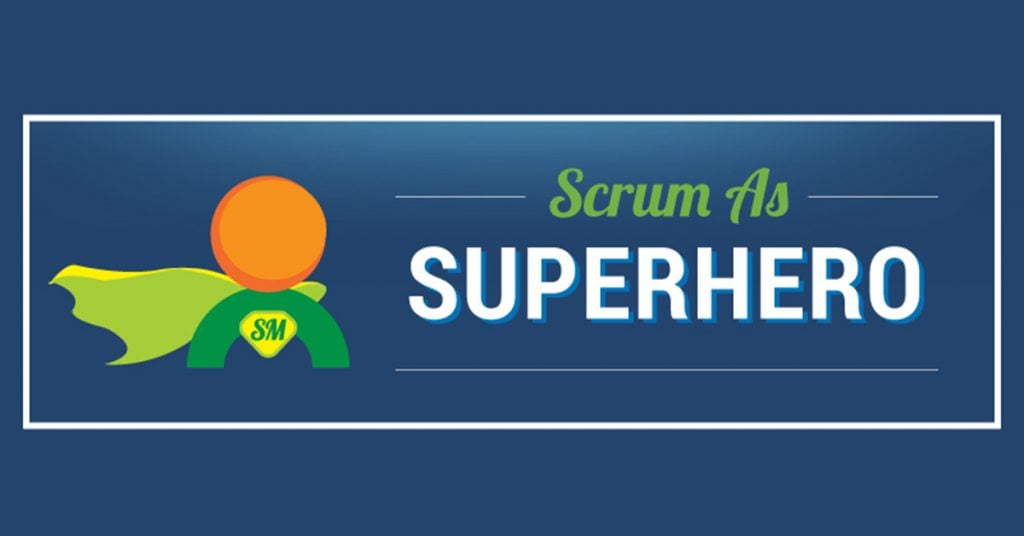Posts Tagged ‘3back’
One Step Back, Two Steps Forward
We were humming along as a Team; suddenly it feels like everybody’s got two left feet. What’s going on? Sometimes when a Team hits a rough patch, after a period of really working well together, it’s hard to understand what went wrong? We’ve faced tough challenges before… this feels different.
Read MoreScrum Handbook: Servant Leadership And Scrum Mastering
Scrum Mastering is a servant-leadership role. That’s a given. The phrase servant leader, first coined by Robert K. Greenleaf in his groundbreaking essay, The Servant as Leader, defined the role as focusing “primarily on the growth and well-being of people and the communities to which they belong. While traditional leadership generally involves the accumulation and exercise of power by one at the ‘top of the pyramid,’ servant leadership is different.”
Read MoreHow To Do Large Scale Scrum [Infographic]
Many large organizations find it hard to deliver valuable Results to their Stakeholders. Their size makes it difficult to adapt to the fact that both the realities of delivery and the Stakeholder’s minds change in unexpected ways. That’s when systematic scaling of Scrum becomes critical to an organization’s success.
Read MoreWhat Makes A Good Stakeholder?
Stakeholders are the reason we develop Product in the first place. Stakeholders are those people that have needs, wants, and desires. (In an IT setting, these may be referred to as desirements, a processing task or type of output that is desired, but not absolutely necessary.) As a Scrum Team, we are trying to identify work that satisfies our Stakeholders.
Read MoreWhat Do You Do When You Finish a Sprint Early?
So, let me talk about the easy stuff first. One of the best things that can happen to a Scrum Team is that it finishes its work early in a Sprint. It amazes me that Teams are confused about what to do, but they are. So here goes… If the Team finishes early, it seems to me there are two choices:
Read MoreScrum as Superhero
Once upon a time, there was a company. A large, multi-layered organization ordered with the task of developing and launching new software. And not just any software. Complex software, unlike anything the organization or the public at large had seen, or used, before. The new software carried with it a set-in-stone launch deadline. The pressure was immediately on to go live. And not just go live in one small testing site; rather, to roll out the software and go live everywhere at the same time…
Read MoreWhen Should You Start a Sprint? When Should You Finish?
Starting. It’s on all of our minds as we work through the first week of the new year. The concept of starting brings to mind one of the most frequently asked questions I receive when I am both training and coaching. When should you start a Sprint? And, the question’s inevitable counterpart, when should you finish a Sprint?
Read MoreThe Twelve Days of Scrum
In the spirit of the holiday season, the 3Back Scrum Singers presents to you, “The Twelve Days of Scrum.” Feel free to sing along.
Read More4 Scrum Stories We Can’t Get Enough Of
Who doesn’t love a good story? Writing a good Story is a critical, and somewhat challenging, component to the Agile process. To further assist you in your quest for good Story writing, we’ve identified 4 categories of Scrum Stories to keep in mind as you write away.
Read MoreThe Dangers of Hybridized Agile
A few weeks ago, an ad caught our 3Back eye. The ad, promoting an upcoming webinar, made a claim that the best approach to solving all of your Organization’s Agile process needs is to pick and choose from a multitude of scaling frameworks, put them all together, and design your own Agile framework potpourri. This “Kitchen Sink” approach to Agile is what we call Hybridized Agile. And it’s dangerous. Very dangerous.
Read More5 Scrum Stats That Will Make Management (And Your Team) Thankful
Scrum is doing it again; proving itself as an influential, effective, and expanding Agile[1] methodology. For this, we at 3Back continue to be thankful…
Read MoreThe One Thing Your Professional Development Might Be Missing
As Agility Instructors and Coaches, we find ourselves in many different learning situations. Each of these learning situations brings participants with varying needs and perceptions about their upcoming training. We frequently encounter participants who feel they have been “sent to training as punishment.” Understandably, their attitude in the classroom reflects these feelings.These participants are resentful of their “forced” attendance, and grumble through training closed off to the possibility of acquiring new skills, expanding their knowledge base, and improving their performance. A missed opportunity…
Read More






